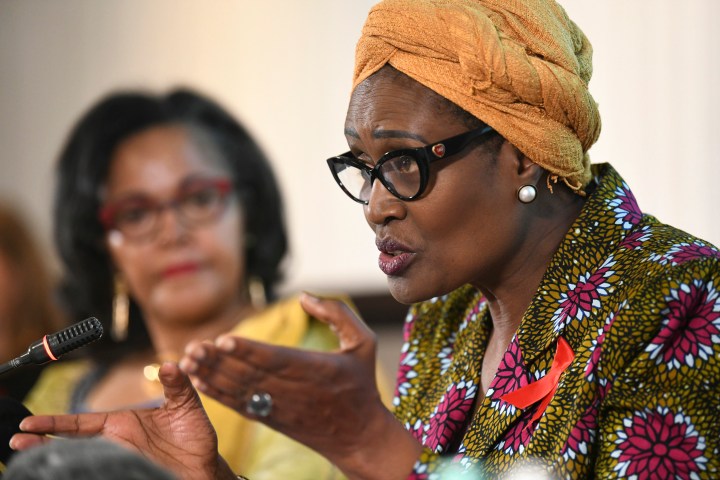Bhekisisa Centre for Health Journalism
Winnie Byanyima: End inequality to improve the global HIV response

In sub-Saharan Africa, four out of five new infections among adolescents aged 15-19 years old are among girls. But when it comes to the global response to HIV/Aids, African women and girls are rarely at the fore and the international community often treats the phrase ‘African’ as if it referred to some homogenous community. It’s time for a change, writes Winnie Byanyima for the Bhekisisa Centre for Health Journalism.
The HIV/Aids epidemic has always been far more than a health issue. The virus thrives on inequality, insecurity, stigma and discrimination, marginalisation, criminalisation and exclusion. That’s why the struggle to end the epidemic continues to be inseparable from the struggle for women’s rights and from the struggle to end all forms of discrimination.
Women and girls continue to be among the worst affected by the epidemic because too often our societies do not value or respect their rights to a decent education, including to comprehensive sexuality education; to sexual and reproductive health and rights; and to their equal right to work or financial independence. It all adds up to a denial of their life chances, and of their opportunities to make informed choices about their health and their future wellbeing.
These bad policies, laws and harmful social norms are having a terrible impact on women and girls.
Just consider the facts:
Worldwide, Aids-related illnesses remain the biggest killer of women aged 15-49 years old. In sub-Saharan Africa, four in five new infections among adolescents aged 15-19 years old are among girls, the latest UNAids statistics show.
Young women in sub-Saharan Africa aged 15-24 years are twice as likely to be living with HIV than men.
It is unacceptable. It is avoidable and it must change.
We must transform the landscape for women and girls. To end HIV/Aids by 2030, we must put a stop to gender-based violence, inequality and insecurity, and ensure that women and girls have equal opportunities in education, employment and health.
Women and adolescent girls are demanding their right to information, education and health; to have their sexual and reproductive health, and rights respected; and to be treated with dignity.
Governments must act on these demands by providing the resources and services to protect their rights, and properly respond to their rights and perspectives.
When I was in South Africa earlier in 2020, I met a group of women leaders, activists and feminists. I was energised by their experiences of disrupting structures and addressing gender inequalities. We spoke about how, when we look at the global HIV/Aids response, African women and girls are invisible and we talk about communities as if they are homogenous. There is an invisibility of who is the most vulnerable and who is shouldering the burden of the epidemic. This is the reason I am so keen to reshape the global and national responses.
We need to change our societies so that everyone’s life is considered precious and valuable, and human rights are respected for everyone. We will not end HIV/Aids while marginalised communities, including LGBTQI+ communities, people who use drugs, sex workers, prisoners and migrants live in fear of violence, criminalisation and the denial of their right to basic services. These groups of people and their sexual partners account for more than 54% of new infections globally, UNAids data reveals.
They have human rights too, including the right to health.
It is time to turn words into practice.
Feminism, human rights and zero discrimination are principles that are deeply rooted across the world. UNAids is fully committed to working with all its allies and partners globally, including communities of people living with and affected by HIV to cultivate these shared values for social justice and to change our societies for good.
There is no other way. To end HIV/Aids, we must end inequality. MC
Winnie Byanyima is UNAids’ executive director.
This story was first published by the Bhekisisa Centre for Health Journalism, . Subscribe to the newsletter.


















 Become an Insider
Become an Insider